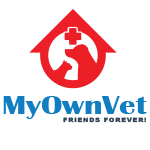Pet Dental Month – August
 This August is Pet Dental Month, meaning this is the perfect reminder to help make your pets smile shine. Staying active and checking your cats and dogs’ teeth is another important role as a pet owner. Alarming studies have shown that 80% of dogs and 70% of cats by the age of two have some form of dental disease.
This August is Pet Dental Month, meaning this is the perfect reminder to help make your pets smile shine. Staying active and checking your cats and dogs’ teeth is another important role as a pet owner. Alarming studies have shown that 80% of dogs and 70% of cats by the age of two have some form of dental disease.
More often, dental problems go unnoticed, and if left untreated could lead to serious health problems. Annual dental health checks are perfect for finding out if your pet is suffering from any dental problems. In its early stages, dental disease early can easily be treated. So be sure to book your dental appointment this month, and most vets have deals going on too!
Know the signs of dental disease
Did you know that pet dental hygiene can add more years to your pet’s life? The most common issue vets deal with is dental disease. People think that bad breath is normal when owning a cat or a dog, and this is wrong. Bad breath is a sign that something could be wrong with your pet’s mouth.
Untreated dental disease does not only cause pain but will lead to other serious health problems. The problem is that the bacteria associated can spread to the bloodstream. Dental disease can be linked with numerous other health problems such as kidney, liver, and heart disease.
Keep an eye out for these common signs:
-
- Bad breath or smell
- A build-up of plaque on your pet’s teeth (brown or black teeth)
- A change of appetite
- Difficulty eating
- Inflamed gums
- Bleeding gums or teeth
- Pawing at the mouth
- Unexplained drooling
- Swelling under eyes
What you can do to prevent dental disease
Unfortunately, pets cannot brush their teeth on their own, and this is where owners can step in and protect them from dental disease. Here are several things you can do to help your pet can smile every day.
Dental Diets
There’s are a number of dental foods that have been formulated to help manage your pets oral hygiene. Two common brands that offer this food is Hills Prescription Diet and Royal Canin Dental with its dental range. These feeds act like an edible toothbrush and cleans your pets’ teeth while they eat. They have been formulated to reduce stains, tartar, plaque build-up, and help with gingivitis.
Dental Treats
 Dental chews are also another way that can help reduce the plaque on your pets’ teeth. Some of these beneficial treats can be given up to twice a day. Often chews are designed to last for several minutes, be sure to monitor your pet as they shouldn’t be eating it whole.
Dental chews are also another way that can help reduce the plaque on your pets’ teeth. Some of these beneficial treats can be given up to twice a day. Often chews are designed to last for several minutes, be sure to monitor your pet as they shouldn’t be eating it whole.
Feeding Raw bones should be strictly monitored with caution. Raw bones have been known to cause fractured teeth and intestinal problems. Cooked bones should never be fed to your pet.
Toothbrushing
Specifically designed toothbrushes can be used to brush your pets’ teeth. This can be used in conjunction with pet toothpaste. Never use human toothpaste as this is not safe for your pet. If you are unsure how you brush your pets’ teeth, feel free to ask your local how this is done. For toothbrushing to be effective, it is recommended that it is done daily.
Conclusion
In conclusion, this August get serious about your pets dental hygiene. With Dental disease affecting 80% of cats and dogs, now is the time to take action.
At My OwnVet, we are more than ready to polish and clean your pets’ teeth Call our office at 07 3277 6594 and our caring staff will schedule your pet’s next exam!
Until next time, give your pet a smile they deserve and remember to start brushing your pets’ teeth!
Your friend and vet expert,
MyOwnVet






















